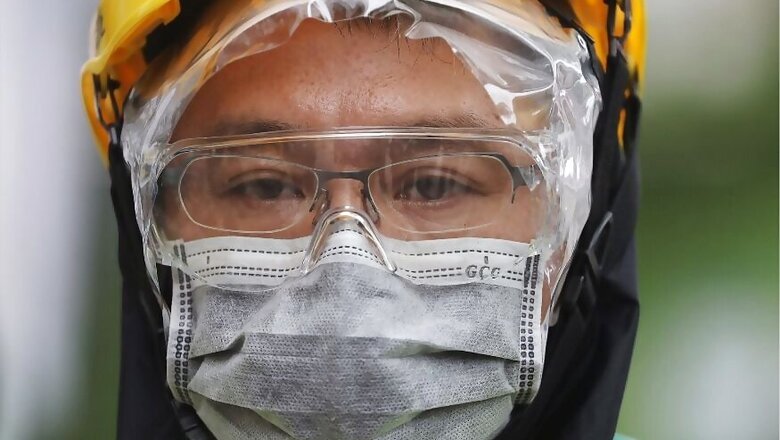
views
New Delhi: As the world grapples with the Covid-19 outbreak, experts are trying to understand the many facets of the viral infection, including symptoms. According to the World Health Organization (WHO), the most common symptoms are fever, tiredness, and dry cough. Some patients may develop aches, nasal congestion, runny nose, sore throat or diarrhoea.
“Some people become infected but don’t develop any symptoms and don't feel unwell,” the WHO’s website says.
But a study by two leading British doctors observed another common symptom in their coronavirus patients — a loss of the sense of smell, Bloomberg Quint reported.
“People can walk around with it for days and even weeks, carrying the infection wherever they go, without knowing they have it,” the report said.
The virus seems adept at leaping from person to person and young people are more likely to remain unaware of their infection. The report brings to fore yet another possibility — several people, even 80-year-olds, have had the virus but never got sick enough to get themselves tested.
Against this backdrop, many are surprised about how the virus has not spread more aggressively.
“Why don’t even more people have it?” Richard Danzig, a national security and bioterrorism expert, was quoted as saying by the report.
Early reports indicated only around 10% of the relatives of those who fall sick get infected, he adds.
“Possibly the numbers are wrong, but we need to focus on why so many people who are exposed don’t get sick,” he said.
When British doctors Claire Hopkins and Nirmal Kumar compared notes with doctors from other countries and collated the data, they concluded around 80% of the individuals who had complained of a loss of their sense of smell would test positive for the coronavirus, the report said. Additionally, an estimated 30% to 60% of the people who had tested positive for the virus had also lost their sense of smell.
“In the past it was once in a blue moon that we saw patients who had lost their sense of smell,” Kumar was quoted as saying. Now, it appears, that they are observing it 10 times more frequently. “It’s one of the things that happens with this virus,” he added.
The figures may miss a few marks, maybe a lot of them. But owing to the limited testing that’s so far been conducted, the report terms it a “heroic guess”.
The report, however, adds it is this scarcity of tests that makes this observation remarkable.
“It offers the possibility of a crude alternative to a test. Lose your sense of smell and you know to isolate yourself, even if you feel great,” it said.
The report further underscored two other possibilities the observation could offer — a way to look at the virus as it travels through various populations, and a device for managing its many risks.



















Comments
0 comment